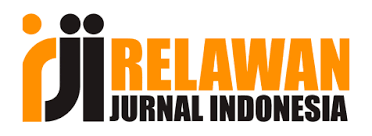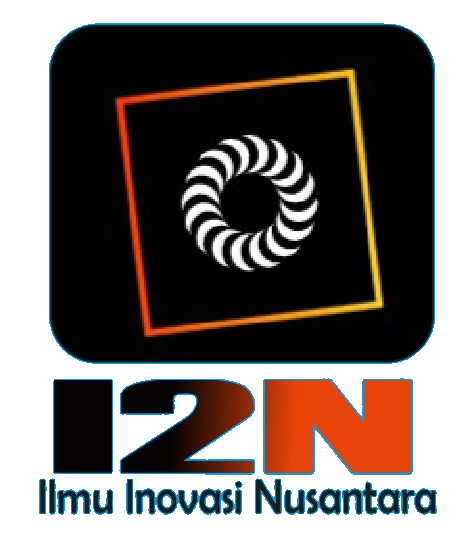Artificial Intelligence in Interpreting Education Curriculum: A Delphi Study for Interpreter Competencies
DOI:
https://doi.org/10.58557/(ijeh).v5i3.323Keywords:
Artificial intelligence (AI), Delphi method, Education policy, Interpreter competency, Interpreter trainingAbstract
This study explores essential competencies for interpreters in the age of artificial intelligence (AI) to ensure they are well-equipped to navigate an evolving professional landscape. Using the Delphi method, a panel of experts identified and ranked key competencies necessary for interpreting graduates, ultimately classifying these into six primary dimensions: Core Cognitive Abilities, Lifelong Learning and Professional Development, Communication and Interpersonal Skills, Specialized Domain Knowledge and Linguistic Expertise, Ethics and Professionalism, and Technology and Information Management. The Technological Pedagogical Content Knowledge (TPACK) framework underpins the study, providing a structured approach to understanding the intersection of AI and interpreter competencies, emphasizing the need for critical thinking, adaptability, and ethical judgment. Findings indicate that competencies such as adaptability and critical thinking are vital for future interpreters, with implications for both curriculum development and professional training in interpreting education. Despite limitations in the diversity of expert perspectives, this study contributes valuable insights to interpreting education, highlighting areas for future research in refining competency frameworks and adapting curricula to AI-driven demands in interpreting
References
Abulibdeh, A., Zaidan, E., & Abulibdeh, R. (2024). Navigating the confluence of artificial intelligence and education for sustainable development in the era of industry 4.0: Challenges, opportunities, and ethical dimensions. Journal of Cleaner Production, 140527.
Alharbi, W. (2024). Future Translators’ Linguistic and Non-linguistic Competencies and Skills in The Age of Neural Machine Translation and Artificial Intelligence: A Content Analysis. International Journal of Linguistics, Literature and Translation, 7(4), 124-143.
Amato, A., & Mack, G. (2022). Interpreter education and training. In The Routledge handbook of translation and methodology (pp. 457-475). Routledge.
Benmansour, M., & Hdouch, Y. (2023). The role of the latest technologies in the translation industry. Emirati Journal of Education and Literature, 1(2), 31-36.
Brandenberger, J., Stedman, I., Stancati, N., Sappleton, K., Kanathasan, S., Fayyaz, J., & Singh, D. (2024). Using Artificial Intelligence Based Language Interpretation in Non-Urgent Paediatric Emergency Consultations: A Clinical Performance Test and Legal Evaluation.
Çalışkan, S. A., Demir, K., & Karaca, O. (2022). Artificial intelligence in medical education curriculum: An e-Delphi study for competencies. PLoS One, 17(7), e0271872.
Chen, F., Li, L., Li, J., Guo, H., Cao, X., & Gong, S. (2023). Development of infectious disease emergency response competencies for nurses in China: a delphi study and an analytic hierarchy process. Journal of Nursing Management, 2023(1), 9952280.
Cheng, S. (2022). Exploring the role of translators’ emotion regulation and critical thinking ability in translation performance. Frontiers in psychology, 13, 1037829.
Cho, J. (2021). Intercultural communication in interpreting: Power and choices. Routledge.
Çoban, F., & Telci, Ü. A. (2016). The role and importance of emotional intelligence in the acquisition of translation skills and translator training: does a translator or interpreter need emotional intelligence. The Journal of International Lingual Social and Educational Sciences, 2(2), 118-125.
Creely, E. (2024). Exploring the Role of Generative AI in Enhancing Language Learning: Opportunities and Challenges. International Journal of Changes in Education.
Defrancq, B. (2024). Conference interpreting in AI settings: New skills and ethical challenges. Handbook of the Language Industry: Contexts, Resources and Profiles, 20, 473.
Dvorianchykova, S., Bondarchuk, J., Syniavska, O., & Kugai, K. (2022). Development of Intercultural Communicative Competence in the Process of Teaching English to Future Interpreters. Arab World English Journal, 13(2), 50-60.
Elmahdi, O. E. H., & Mohammad, H. M. H. (2024). Preparing Students for the Multilingual World: The Case for Integrating Translation and Interpreting into English Language Education Curricula. International Journal of Linguistics, Literature and Translation, 7(10), 197-216.
Fan, D. C. (2024). Conference interpreters’ technology readiness and perception of digital technologies.
Furtado, L., Coelho, F., Pina, S., Ganito, C., Araújo, B., & Ferrito, C. (2024, September). Delphi Technique on Nursing Competence Studies: A Scoping Review. In Healthcare (Vol. 12, No. 17, p. 1757). MDPI.
George, A. S. (2023). The Ephemeral Career: How Technological Change Necessitates Flexible Employment. Partners Universal International Innovation Journal, 1(5), 47-62.
Giustini, D. (2021). “The whole thing is really managing crisis”: Practice theory insights into interpreters' work experiences of success and failure. The British Journal of Sociology, 72(4), 1077-1091.
Horváth, I. (2022). AI in interpreting: Ethical considerations. Across Languages and Cultures, 23(1), 1-13.
Horváth, I., & Tryuk, M. (2021, November). Ethics and Codes of ethics in Conference Interpreting. In The Routledge Handbook of Conference Interpreting (pp. 290-304). Routledge.
Howes, L. M. (2023). Ethical dilemmas in community interpreting: interpreters’ experiences and guidance from the code of ethics. The Interpreter and Translator Trainer, 17(2), 264-281.
Kolb, D. A., Boyatzis, R. E., & Mainemelis, C. (2014). Experiential learning theory: Previous research and new directions. In Perspectives on thinking, learning, and cognitive styles (pp. 227-247). Routledge.
Kumar, A., & Nagar, D. K. (2024). AI-Based Language Translation and Interpretation Services: Improving Accessibility for Visually Impaired Students. As the editors of Transforming Learning: The Power of Educational, 178.
LI, R., & ZHANG, A. (2023). Professional Doctorate in Translation and Interpreting: Next Thing on the Horizon in Chinese Mainland. Journal of Translation Studies, 3(1), 43-63.
Li, X. (2024). Mapping the Research Landscape of Interpreter and Translator Education: Current Themes and Future Directions. Taylor & Francis.
McIntyre‐Hite, L. (2016). A Delphi study of effective practices for developing competency‐based learning models in higher education. The Journal of Competency‐Based Education, 1(4), 157-166.
Moneus, A. M. A., & Tagaddeen, I. N. A. (2023). Ethical issues of military interpreters in the front lines: Challenges and borders. RES MILITARIS, 13(1), 494-521.
Moneus, A. M., & Sahari, Y. (2024). Artificial intelligence and human translation: A contrastive study based on legal texts. Heliyon, 10(6).
Monzó Nebot, E. (2015). Understanding legal interpreter and translator training in times of change. The Interpreter and Translator Trainer, 9(2), 129-140.
Morandini, S., Fraboni, F., De Angelis, M., Puzzo, G., Giusino, D., & Pietrantoni, L. (2023). The impact of artificial intelligence on workers’ skills: Upskilling and reskilling in organisations. Informing Science, 26, 39-68.
Naveen, P., & Trojovský, P. (2024). Overview and challenges of machine translation for contextually appropriate translations. iScience, 27(10).
Oraki, A., & Tajvidi, G. (2020). Training translators and interpreters: the need for a competence-based approach in designing university curricula. Iranian Journal of English for Academic Purposes, 9(2), 42-56.
Orlando, M. (2016). Training 21st century translators and interpreters: At the crossroads of practice, research and pedagogy (Vol. 21). Frank & Timme GmbH.
ÖZKAYA MARANGOZ, E. (2023). NEW APPROACHES IN INTERPRETER TRAINING: ENHANCING COMPETENCE AND ADAPTATION. International Journal of Language Academy, 11(4).
Paul, R., & Elder, L. (1992). Critical thinking: What, why, and how. New directions for community colleges, 77(2), 3-24.
Pöchhacker, F. (2022). Interpreters and interpreting: shifting the balance?. The Translator, 28(2), 148-161.
Popov, A. (2023). The future of work: Adapting to technological disruptions in the labor market. Journal of Philosophical Criticism, 6(02), 199-217.
Rahayu, P., & Wulandari, I. A. (2022). Defining e-portfolio factor for competency certification using fuzzy delphi method. Procedia computer science, 197, 566-575.
Sällberg, H., & Folino, E. (2024). The relative importance of distance education challenges to instructors in higher education–A ranking-type Delphi study. Education and Information Technologies, 29(11), 13495-13522.
Samantray, K., İZGİ, F. D., Ocampo, M. B., Dehghan, M., Mohammadpour, S., Siriphaprapagon, Y., ... & Babu, S. D. (2024). The Power of Words in AI-Driven World: Exploring the Interplay of Language, Culture, and Communication. SKETSAMEDIA.
Sandrelli, A., & Jerez, J. D. M. (2007). The impact of information and communication technology on interpreter training: State-of-the-art and future prospects. The Interpreter and translator trainer, 1(2), 269-303.
Santos, J. M., & Castro, R. D. (2021). Technological Pedagogical content knowledge (TPACK) in action: Application of learning in the classroom by pre-service teachers (PST). Social Sciences & Humanities Open, 3(1), 100110.
Skulmoski, G. J., Hartman, F. T., & Krahn, J. (2007). The Delphi method for graduate research. Journal of Information Technology Education: Research, 6(1), 1-21.
Taghian, M. A. (2024). Assessing the Accuracy Criteria of AI Tools-aided Translation: A Case Study of Two-word Prophetic Hadiths. CDELT Occasional Papers in the Development of English Education, 87(1), 217-262.
Thornhill-Miller, B., Camarda, A., Mercier, M., Burkhardt, J. M., Morisseau, T., Bourgeois-Bougrine, S., ... & Lubart, T. (2023). Creativity, critical thinking, communication, and collaboration: assessment, certification, and promotion of 21st century skills for the future of work and education. Journal of Intelligence, 11(3), 54.
Tian, X. (2024). Personalized Translator Training in the Era of Digital Intelligence: Opportunities, Challenges, and Prospects. Heliyon.
Timarová, S., & Salaets, H. (2011). Learning styles, motivation and cognitive flexibility in interpreter training: Self-selection and aptitude. Interpreting, 13(1), 31-52.
Tipton, R. (2024). The Routledge Guide to Teaching Ethics in Translation and Interpreting Education. Taylor & Francis.
Tondeur, J., Scherer, R., Siddiq, F., & Baran, E. (2020). Enhancing pre-service teachers’ technological pedagogical content knowledge (TPACK): A mixed-method study. Educational Technology Research and Development, 68(1), 319-343.
Wang, B., & Tang, F. (2020). Corpus-based interpreting studies in China: Overview and prospects. Corpus-based translation and interpreting studies in Chinese contexts: Present and future, 61-87.
Wang, H., & Li, Z. (2022). Constructing a competence framework for interpreting technologies, and related educational insights: an empirical study. The Interpreter and Translator Trainer, 16(3), 367-390.
Wen, H., & Dong, Y. (2019). How does interpreting experience enhance working memory and short-term memory: A meta-analysis. Journal of Cognitive Psychology, 31(8), 769-784.
Wu, X., Duan, R., & Ni, J. (2024). Unveiling security, privacy, and ethical concerns of ChatGPT. Journal of Information and Intelligence, 2(2), 102-115.
Ye, J., Tao, W., Yang, L., Xu, Y., Zhou, N., & Wang, J. (2022). Developing core competencies for clinical nurse educators: An e-Delphi-study. Nurse Education Today, 109, 105217.
Yeung, E., Scodras, S., Salbach, N. M., Kothari, A., & Graham, I. D. (2021). Identifying competencies for integrated knowledge translation: a Delphi study. BMC health services research, 21, 1-18.
Downloads
Published
How to Cite
Issue
Section
License
Copyright (c) 2025 Chunwen Yang, Jing Chen, Deyan Zou

This work is licensed under a Creative Commons Attribution-ShareAlike 4.0 International License.














